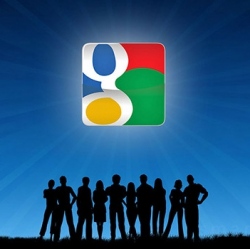
The search giant has secured intellectual rights to a system that would serve ads based on environmental conditions.
Google said forward-looking patents were useful for its portfolio, but it had no current plans to act on it.
But privacy advocates have warned it could set a dangerous precedent.
Spying device?
The patent, first reported by PC World magazine, potentially paves the way for a mobile phone fitted with sensors that would allow it to record data such as temperature, humidity, light, and sound or air composition, which would trigger relevant adverts.
"Advertisements for air conditioners can be sent to users located at regions having temperatures above a first threshold, while advertisements for winter overcoats can be sent to users located at regions having temperatures below a second threshold," explains the patent document.
The patent would allow Google to search offline data as well as online
Gus Hosein, executive director of Privacy International, is not impressed.
"Not content with collecting vast amounts of information from your online activities, it seems Google are looking to start exploiting the offline space as well. Patents like this may never come to fruition, but they force us to ask ourselves: how many aspects of our lives will advertisers try to exploit, and where will it end?
"This is an attempt to turn our devices into personal spying devices, just so a company can try to sell you a coat on a cold day."
Google was keen to put the patent in context.
"We file patent applications on a variety of ideas that our employees come up with. Some of those ideas later mature into real products or services, some don’t. Prospective product announcements should not necessarily be inferred from our patent applications," said a Google spokesman.
‘Minority Report’
Patents are the new battlefield for tech firms, and as well as seeking to gain as many device-specific patents as possible, many are also lodging forward-thinking ideas to future-proof themselves.
Andrew Alton, a patent lawyer with law firm Urquhart-Dykes and Lord, said it was a logical extension of Google’s context advertising.
"There are elements of things from the film Minority Report happening in the real world but this is just an extension of context-based advertising. It is what Google does anyway – combining people’s past history with search results or searches based on GPS location," he said.
He said that such "blue sky patents" were becoming increasingly popular with firms.
"Lodging patents on stuff you are already doing puts you behind the times. To guess what will happen next, to step back and look at the next generation of products that puts you in a dominant position," he said.
"If you spend money on research and development of new products, the costs may be massive but getting licensing rights when someone else invents it is free money for firms," he added.
